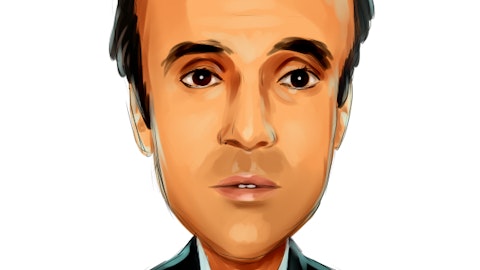Hedge Fund Elliott Proposes Celesio Breakup (WSJ)
Hedge fund Elliott Capital Advisors considers drug wholesaler McKesson Corporation (NYSE:MCK) -0.33% $6.1 billion takeover offer for Germany’s Celesio AG CLS1.XE +0.35% too low, and is instead proposing to break up Celesio in pursuit of a sweeter deal, three people familiar with the matter said. The hedge fund contends that splitting Celesio and selling its wholesale and retail operations separately would yield more than what McKesson is offering, people briefed on the matter said. …Elliott, which was founded by U.S. billionaire Paul E. Singer, began building its stake in Celesio earlier this year, and holds around 25% of the company when accounting for two convertible bonds.

Quantitative Trading Makes Inroads in Asia (WSJ)
High-tech trading is making inroads in Asia, as hedge-fund managers gain access to a wider range of market information and look to profit from strategies that go beyond picking which stocks may rise. Funds that utilize quantitative analysis, in particular, are finding favor in the region. Quant funds, as they are called, rely on mathematical models that crunch numbers from a variety of sources to arrive at trading decisions. “It’s a global trend but is playing out more here,” says Graham Seaton, head of Bank of America Corp (NYSE:BAC) -0.19% Merrill Lynch’s Asia Pacific prime brokerage, which provides services to hedge funds. “We know several providers that are looking at offering new equity quant products in the next six months.”
SAC Capital’s Reinsurer to Be Sold to Investor Group Headed by Duperreault (InsuranceJournal)
Steven A. Cohen, the billionaire founder of SAC Capital Advisors LP, agreed to sell a reinsurer he formed in 2012 after the hedge fund firm reached a $1.8 billion deal to end a criminal investigation. A group led by former Marsh & McLennan Companies, Inc. (NYSE:MMC) Chief Executive Officer Brian Duperreault entered an agreement to purchase the Bermuda-based operation, according to an e-mailed statement yesterday from the buyers that didn’t disclose terms. Duperreault is partnering with Two Sigma Investments LLC, the quantitative hedge fund-firm with about $16 billion in assets, according to the statement. “They’re a technology company that has really been at the forefront of data analysis,” Duperreault said in a phone interview…
Volcker Rule: New Legislation May Affect Hedge Fund Prime Brokers (HedgeCo)
As regulators prepare to vote on the proposed Volcker legislation that restricts banks from making risky bets, Albert Kyle at the University of Maryland says that the new rules may make hedge fund investments riskier unless their broker dealers ensure careful risk management. “Restrictions on banks engaging in proprietary trading will move risk out of banks and into hedge funds.” Albert Kyle of UM’s Robert H. Smith School of Business, said. “Since banks will remain the hedge funds’ prime brokers, risks associated with the disorderly collapse of hedge funds will spill back into the banking system unless prime brokerage has judicious, careful risk management.
This Hedge Fund Has Made a Killing on Bushmaster Assault Rifles (MotherJones)
Last December, four days after Adam Lanza murdered 20 first graders and six educators at an elementary school in Newtown, Conn., Cerberus Capital Management pledged to sell the Freedom Group, the company that manufactured the Bushmaster XM-15 assault rifle that Lanza used. The announcement helped tamp down a rising PR disaster for the Manhattan private equity firm, placating major investors such as the California State Teachers Retirement System (CalSTRS), which had said it was “examining” its $750 million stake in Cerberus after the massacre. The New York Times described the move as “a rare instance of a Wall Street firm bending to concerns about an investment’s societal impact.”
Citi survey finds ‘2/20’ fading (SecuritiesLendingTimes)
The business of hedge funds is caught between rising costs and falling management fees, holding little profit for managers that do not perform, according to a survey. The Citi Prime Finance 2013 Business Expense Benchmark Survey found that the traditional ‘2 and 20’ model of investment manager compensation—2 percent management fee and 20 percent of the profits—has declined to fee levels as low as 1.58 percent of assets under management for all but the largest managers. As a result, hedge fund managers, unlike their counterparts in traditional, long-only funds, barely break even simply collecting fees.





